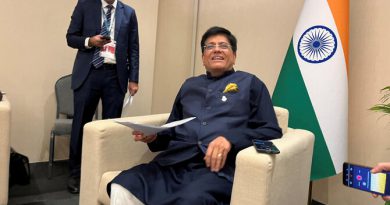ANALYSIS: Erdogan is turning Turkey into a Chinese Client State
by Ayca Alemdaroglu and Sultan Tepe
Cash flowing in from China has become critical for Erdogan’s regime and has strengthened the president’s hand at crucial moments.
Turkish President Recep Tayyip Erdogan used to send shockwaves to Beijing with his outspoken support of China’s Uighur minority, a predominantly Turkic-speaking Muslim group in Xinjiang that is subject to horrific human rights violations. “The incidents in China are, simply put, a genocide,” Erdogan said in 2009, when he was prime minister. And it wasn’t just empty words: Turkey has been a safe haven for Uighurs fleeing persecution ever since the Chinese Communist Party took control of Xinjiang in 1949 and hosts one of the largest Uighur diaspora populations in the world.
Then came a sudden, unexpected switch. In 2016, Turkey arrested Abdulkadir Yapcan, a prominent Uighur political activist living in the country since 2001 and initiated his extradition. In 2017, Turkey and China signed an agreement allowing extradition even if the purported offense is only illegal in one of the two countries. Since early 2019, Turkey has arrested hundreds of Uighurs and sent them to deportation centers. And Erdogan’s remarks have turned diplomatically bland, just like any Uighur-related coverage in newspapers controlled by Erdogan and his supporters.
Erdogan’s remarkable U-turn has a simple explanation: His regime and Turkey’s economy are in crisis. With few other friends, Ankara is counting on Beijing to patch things up, and that requires adherence to Beijing’s talking points. Erdogan’s problems are mounting: Turkey’s economy has been hit hard by the coronavirus pandemic, which has devastated its primary economic sector, tourism. As Erdogan tightens his control over the central bank and the courts, foreign reserves are shrinking, the trade deficit is rising, and the Turkish lira is plunging. Once seen as a model of democracy and economic development in the region, Turkey is now an authoritarian country; on the Liberal Democracy Index compiled by the University of Gothenburg’s V-Dem Institute, Turkey now ranks among the bottom 20, closer to China than the developed countries to which it once aspired. Western companies and investors, once attracted to Turkey’s fast-growing economy and population, are staying away.
China’s appetite for expansion into Western Asia and Europe offers Erdogan a lifeline. Cooperation has expanded exponentially: Since 2016, the two countries have signed 10 bilateral agreements including on health and nuclear energy. China is now Turkey’s second-largest import partner after Russia. China has invested $3 billion in Turkey between 2016 and 2019 and intends to double that by the end of next year. Cash flowing in from China has become critical for Erdogan’s regime and has strengthened the president’s hand at crucial moments.
When the lira’s value dropped by more than 40 percent in 2018, the state-owned Industrial and Commercial Bank of China provided the Turkish government $3.6 billion in loans for ongoing energy and transportation projects. In June 2019, in the wake of Istanbul municipal elections that indicated crumbling support for Erdogan, China’s central bank transferred $1 billion—the largest cash inflow under a swap agreement between the two countries’ central banks that was last renewed in 2012. As Erdogan’s popularity has dwindled this year amid the coronavirus crisis and a severe currency shortage, China came to the rescue again in June. Beijing is now allowing Turkish companies to use the Chinese yuan to make trade payments, allowing them easier access to Chinese liquidity—another step up in financial cooperation.
China’s Belt and Road Initiative (BRI) offers Turkey a source of fresh cash—and Beijing a strategic foothold on the Mediterranean Sea.
As part of the infrastructure-building initiative, Turkey completed a railroad from Kars in eastern Turkey via Tbilisi, Georgia, to Baku, Azerbaijan, on the Caspian Sea, from where it links to transportation networks to China. In 2015, a Chinese consortium bought 65 percent of Turkey’s third-largest container terminal, Kumport, in Istanbul, acquiring a pivotal position in container transportation. Chinese investors also helped salvage Erdogan’s own poorly managed megaprojects. In January 2020, a Chinese consortium bought 51 percent of the Yavuz Sultan Selim Bridge connecting Europe and Asia across the Bosporus after revenue projections failed and the Italian-Turkish consortium controlling the bridge wanted out.
The BRI projects help shore up Erdogan in other ways. They have reinforced Turkey’s strategy to assert itself as a transportation corridor and have boosted Erdogan’s political brand by promoting him as someone who can develop infrastructure, attract funds, and undertake large-scale projects. And the cash keeps coming: This year, China’s Export and Credit Insurance Corp. committed up to $5 billion for Turkey’s Wealth Fund, to be used for BRI projects. The fund’s limited transparency and accountability raise further concerns about where the money is going and Turkey’s ability to repay.
Energy, another sector whose development has been key to Erdogan’s power, has seen even greater investment under the BRI umbrella. China is providing $1.7 billion to build the Hunutlu coal-fired power plant on the Mediterranean Sea, projected to produce 3 percent of the country’s electricity when it is completed. Ankara plans to sign a deal with China’s State Nuclear Power Technology Corp. to build Turkey’s third nuclear power plant.
Beyond infrastructure, Sino-Turkish cooperation involves deepening bilateral military and security ties, including in intelligence and cyberwarfare. Turkey’s Bora ballistic missile—modeled on the Chinese B-611 missile, introduced in 2017, and deployed in the Turkish military operation against the Kurdistan Workers’ Party (PKK) in May 2019—is a product of bilateral defense cooperation, as was the participation of Chinese military officers in Turkey’s Ephesus military exercise in 2018.
Huawei, which has been designated a national security threat in the United States and elsewhere due to its ties to the Chinese government and military, has no such opposition in Turkey. Its share in the Turkish market has grown from only 3 percent in 2017 to 30 percent in 2019. Allegations about Chinese use of telecommunications infrastructure for state surveillance and suppression are especially worrisome in Turkey, where the population relies on the internet and social media for information due to strict control of other media channels. Another Chinese technology company, ZTE, took over 48 percent of Netas, Turkey’s key telecommunications equipment manufacturer, in 2016. Netas manages pivotal projects including the new Istanbul Airport’s telecommunications and the digitalization of national health data.
For now, strengthening relations between China and Turkey appears to benefit both sides. China has found a highly strategic foothold in Turkey—a NATO member with a large market for energy, infrastructure, defense technology, and telecommunications at the crossroads of Europe, Asia, and Africa. For Turkey and Erdogan, China provides desperately needed resources to fund high-profile megaprojects and maintain the veneer of development despite the crippling economic reality underneath. Just as importantly, Chinese cash helps Erdogan avoid seeking help from Western-dominated institutions such as the International Monetary Fund, which would require him to commit to reforms and other measures that could undermine his unfettered control over the country’s economy.
Article first published on ForeignPolicy.com.



